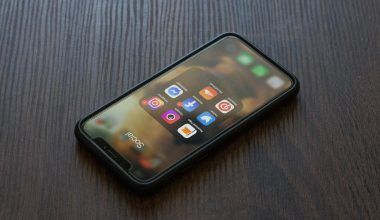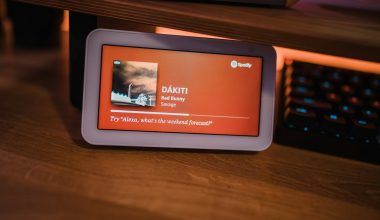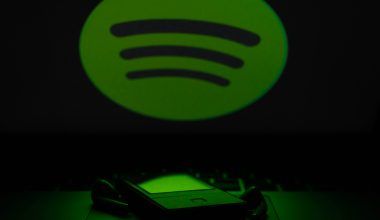Spotify, the world-renowned music streaming service, is a publicly traded company. The question “Who owns Spotify?” doesn’t have a straightforward answer. Instead, its ownership is divided among its founders, shareholders, and institutional investors.
Founded in 2006 by Daniel Ek and Martin Lorentzon, Spotify began as a startup in Stockholm, Sweden. Since its official launch in 2008, the company has grown exponentially, going public in April 2018. Today, Spotify’s ownership includes its founders, major investors, and millions of public shareholders.
Let’s explore who owns Spotify and how its ownership structure influences its operations.
The Founders: Daniel Ek and Martin Lorentzon
The story of Spotify starts with its founders:
Daniel Ek
- Co-founder and current CEO of Spotify.
- A tech entrepreneur with a background in engineering and digital innovation.
- Holds a significant stake in Spotify, making him one of the most influential figures in the company.
Martin Lorentzon
- Co-founder and former chairman of Spotify.
- A seasoned entrepreneur with experience in advertising and tech startups.
- Maintains a key stake in Spotify alongside Daniel Ek.
Together, these visionaries laid the groundwork for Spotify’s success, retaining substantial control over its direction even after going public.
Spotify’s Initial Public Offering (IPO)
Spotify went public on April 3, 2018, through a direct listing on the New York Stock Exchange (NYSE). Unlike traditional IPOs, Spotify’s direct listing allowed existing shareholders to sell their stakes without issuing new shares.
This event marked a shift in Spotify’s ownership, introducing institutional investors and the general public as shareholders.
Who Owns Spotify Today?
Spotify’s ownership is now distributed among several key groups:
1. Founders
- Daniel Ek and Martin Lorentzon retain significant stakes in Spotify.
- Their combined ownership accounts for a notable portion of voting power, ensuring they influence major decisions.
2. Institutional Investors
- Companies like Tencent, Baillie Gifford, and Morgan Stanley are among Spotify’s largest institutional investors.
- Tencent, a Chinese tech giant, holds a strategic stake in Spotify, reflecting its interest in global music streaming.
- Millions of individual investors own Spotify shares, which trade under the ticker symbol SPOT on the NYSE.
- Public shareholders have contributed to Spotify’s market valuation, making it a leader in the streaming industry.
4. Employees and Early Investors
- Early employees and investors also own shares, benefiting from Spotify’s growth.
- These stakeholders played critical roles in Spotify’s early success and continue to hold equity in the company.
The Role of Tencent in Spotify Ownership
Tencent, one of China’s largest tech companies, owns a stake in Spotify through its subsidiary Tencent Music Entertainment. This partnership:
- Enhances Spotify’s access to the Chinese market.
- Represents a strategic alliance between two streaming giants.
Tencent’s involvement in Spotify is an example of how global partnerships shape the streaming industry.
How Spotify’s Ownership Affects Its Operations
The question “Who owns Spotify?” isn’t just about names and numbers. Ownership directly impacts the company’s strategy, growth, and innovation:
- Founder Influence
- Daniel Ek’s leadership ensures that Spotify remains focused on user experience and technological innovation.
- His significant voting power allows him to guide Spotify’s long-term vision.
- Investor Expectations
- Institutional investors drive Spotify’s growth by demanding profitability and market expansion.
- Shareholder expectations push Spotify to innovate and stay competitive.
- Public Accountability
- As a publicly traded company, Spotify must maintain transparency and meet quarterly financial targets.
Spotify’s Global Expansion and Ownership
Spotify’s ownership structure has enabled its rapid global expansion:
- Licensing Agreements: Strong investor backing allowed Spotify to secure music licenses from major record labels.
- Technology Investments: Funding from shareholders supports AI-driven features like personalized playlists.
- Market Presence: Ownership diversity ensures Spotify competes effectively in markets worldwide.
Challenges in Spotify’s Ownership Model
Despite its success, Spotify’s ownership model faces challenges:
- Balancing Profitability
- Shareholder pressure for profits conflicts with the high costs of licensing and streaming infrastructure.
- Artist Compensation
- Critics argue that Spotify’s royalty payouts are insufficient, raising questions about its revenue-sharing model.
- Market Competition
- Competing with Apple Music, Amazon Music, and YouTube Music requires continuous investment and innovation.
Spotify’s Future Ownership Trends
As Spotify grows, its ownership structure may evolve further:
- Increased Public Shareholding: More shares may be sold to the public, diluting founder stakes.
- Strategic Partnerships: Collaborations with global tech firms could lead to shifts in ownership.
- Employee Equity: Expanding employee stock programs could broaden ownership within the company.
Conclusion: Who Owns Spotify?
The answer to “Who owns Spotify?” lies in its dynamic ownership structure. While founders Daniel Ek and Martin Lorentzon remain influential, institutional investors, public shareholders, and strategic partners like Tencent play critical roles in Spotify’s journey.
Spotify’s ownership reflects its status as a global tech leader, balancing innovation with accountability. As the company evolves, its ownership will continue to shape the future of music streaming.
Related Articles:
For further reading, explore these related articles:
- Spotify Launch Date: Revolutionizing Music Streaming Since 2008
- Spotify Today’s Top Fans: Celebrating Your Favorite Artists
For additional resources on music marketing and distribution, visit Deliver My Tune.






